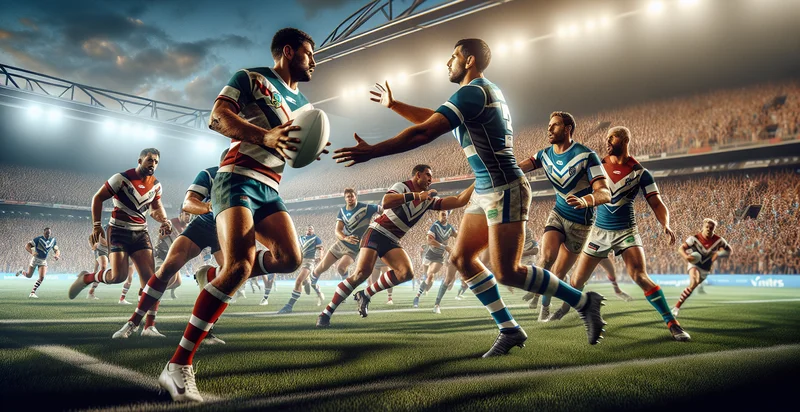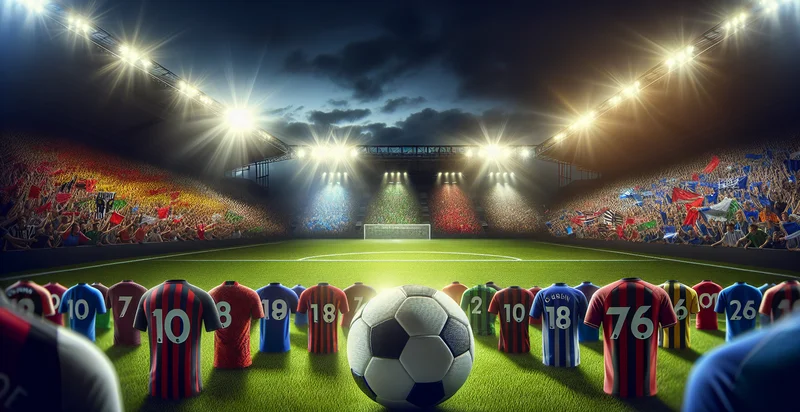Identify rugby league teams
using AI
Below is a free classifier to identify rugby league teams. Just upload your image, and our AI will predict what rugby league team it is - in just seconds.

Contact us for API access
Or, use Nyckel to build highly-accurate custom classifiers in just minutes. No PhD required.
Get started
import nyckel
credentials = nyckel.Credentials("YOUR_CLIENT_ID", "YOUR_CLIENT_SECRET")
nyckel.invoke("rugby-league-teams", "your_image_url", credentials)
fetch('https://www.nyckel.com/v1/functions/rugby-league-teams/invoke', {
method: 'POST',
headers: {
'Authorization': 'Bearer ' + 'YOUR_BEARER_TOKEN',
'Content-Type': 'application/json',
},
body: JSON.stringify(
{"data": "your_image_url"}
)
})
.then(response => response.json())
.then(data => console.log(data));
curl -X POST \
-H "Content-Type: application/json" \
-H "Authorization: Bearer YOUR_BEARER_TOKEN" \
-d '{"data": "your_image_url"}' \
https://www.nyckel.com/v1/functions/rugby-league-teams/invoke
How this classifier works
To start, upload your image. Our AI tool will then predict what rugby league team it is.
This pretrained image model uses a Nyckel-created dataset and has 16 labels, including Broncos, Bulldogs, Cowboys, Dragons, Eels, Knights, Panthers, Rabbitohs, Raiders and Roosters.
We'll also show a confidence score (the higher the number, the more confident the AI model is around what rugby league team it is).
Whether you're just curious or building rugby league teams detection into your application, we hope our classifier proves helpful.
Related Classifiers
Need to identify rugby league teams at scale?
Get API or Zapier access to this classifier for free. It's perfect for:
- Team Performance Analytics: This function can analyze match footage to classify and identify specific rugby league teams, allowing coaches to evaluate performance dynamics against competitors. By obtaining insights into strategies employed by rival teams, coaches can refine their tactics for improved outcomes in upcoming matches.
- Fan Engagement and Merchandise Targeting: With the ability to classify rugby league teams accurately, clubs can enhance fan engagement by tailoring marketing strategies for merchandise based on fan preferences. This can lead to personalized promotions and advertisements that resonate with specific fan bases.
- Sponsorship Evaluation: Brands looking to sponsor teams can leverage this classification function to assess the visibility and popularity of various rugby league teams. This data can help sponsors make informed decisions about where to allocate their marketing budgets for maximum impact.
- Broadcast and Content Personalization: Media companies can utilize the rugby league team identifier for personalized content delivery to viewers. By analyzing viewer preferences and behaviors, they can provide customized highlights, replays, and analyses specific to the teams of interest, enhancing viewer satisfaction and retention.
- Youth Development Programs: Sports academies can use the classification function to develop training programs tailored to the playing styles of different rugby league teams. By understanding specific team tactics, they can cultivate young players' skills that align well with future team strategies.
- Injury Prevention Research: Researchers can employ the team identifier to study injury patterns among players from different teams, analyzing how specific strategies and play styles contribute to injury risk. This knowledge can inform coaching adjustments and player conditioning programs aimed at reducing injury incidents.
- Historical Performance Tracking: Analysts can utilize the rugby league team classification to compile and track historical performance data. This information can be critical for sports commentators and analysts who aim to provide insights and statistics that influence betting markets, fan discussions, and team evaluations during matches.


